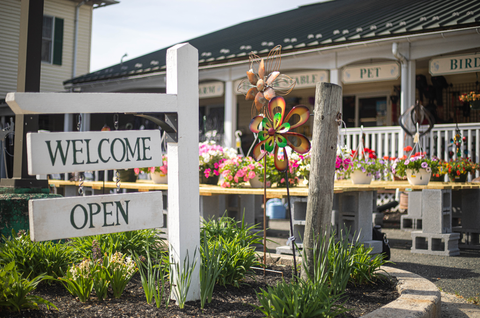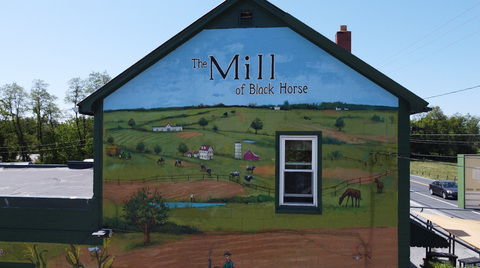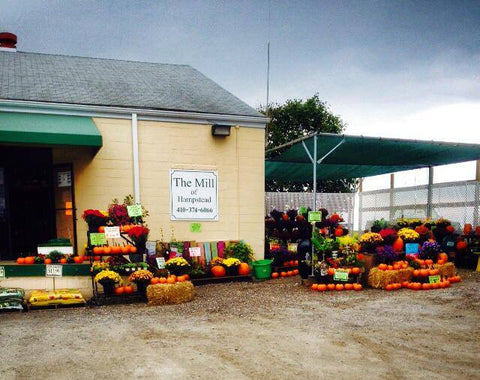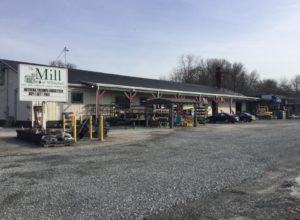When it comes to equine care, hoof health is critical. "No hoof, no horse" is a saying every horse owner knows well. With winter's challenges in the Mid-Atlantic region, maintaining strong and healthy hooves becomes even more important. Here, we look at nutrients that contribute to maintaining hoof health and share tips for winter hoof care.
Key Nutrients for Hoof Health
1. Biotin:
- Biotin, a B-vitamin, is essential for keratin production, the protein that makes up the hoof wall.
- Horses typically require 15-20 mg of biotin per day for hoof health. While pasture usually provides adequate biotin, winter hay diets are lacking. Feeds or supplements fortified with biotin can support growth and durability, particularly for horses with brittle or cracked hooves.
2. Methionine and Lysine:
- These are amino acids critical for keratin synthesis. Methionine is a sulfur-containing amino acid that helps in the formation of strong hoof structures.
- Lysine is a building block for keratin and collagen formation. Lysine helps with cross-linking collagen for hoof integrity. Additionally, Lysine supports calcium absorption and protein formation which helps support healthy hoof tissue. Lysine is the first limited amino acid, therefore inadequate lysine prevents all other processes depending on protein synthesis.
-
Providing high-quality protein sources ensures adequate levels of these amino acids.

3. Zinc and Copper:
-
Zinc plays a role in keratin formation, while copper supports con
nective tissue development in the hoof. - A deficiency in these trace minerals can lead to weak hooves and slow growth. Balanced feeds or additional mineral supplements are key.
4. Fatty Acids:
- Omega-3 and Omega-6 fatty acids improve moisture retention and elasticity in hooves.
- Flaxseed, rice bran, and fish oil are excellent sources of these essential fats.
- Fats aid in absorption of fat-soluble vitamins. Learn more here.
5. Calcium and Phosphorus:
- These minerals are crucial for overall hoof and bone health.
- Maintaining the correct calcium-to-phosphorus ratio (around 1.5:1 to 2:1) is important to avoid imbalances.
6. Vitamin A:
- This vitamin supports tissue development and repair, promoting healthy hoof growth.
- Ensure your horse has access to quality forage, which is a natural source of vitamin A. Fresh grass has adequate vitamin A, but processed forage loses most of the vitamins through curing. For winter diets provide feed or supplements that are fortified with adequate levels of fat-soluble vitamins.
7 Tips for Keeping Hooves Healthy in Winter
Winter brings unique challenges for equine hoof health, from wet, muddy conditions to hard, frozen ground.
1. Maintain Regular Farrier Visits:
- Continue routine trimming or shoeing every 4-6 weeks, even during the off-season. Long or uneven hooves are more prone to cracks and infections.
2. Keep Hooves Clean and Dry:

- Regularly pick out hooves to remove mud, manure, and ice balls that can trap moisture and lead to thrush or abscesses.
- Use hoof disinfectants as needed to prevent bacterial and fungal infections.
3. Provide Proper Nutrition:
- Ensure your horse's diet includes the key nutrients listed above. Consider a hoof-specific supplement if your horse struggles with hoof quality.
4. Protect Against Ice and Snow:
- Use hoof boots or pads if your horse is prone to slipping on icy ground.
- Apply non-toxic hoof dressings or coatings to prevent excessive moisture absorption and to protect against freezing temperatures.
5. Manage Mud and Moisture:
- Ensure your horse’s turnout area has adequate drainage to minimize standing in mud. Gypsum incorporated into high traffic areas can help improve drainage over time.
- Provide a dry shelter or a hard-packed area for your horse to escape wet conditions.
- Rotate paddocks and placement of water or feed tubs to reduce muddy areas where horses congregate.
6. Promote Circulation:
- Daily exercise improves blood flow to the hooves, supporting growth and strength.
7. Inspect Hooves Frequently:
- Check for signs of thrush, cracks, bruises, or other damage. Early detection and prompt treatment with antifungals, moisturizers, and poultice can prevent minor issues from becoming major problems.
Keeping your horse’s hooves healthy through winter requires a combination of proper nutrition, routine care, and proactive management. By providing essential nutrients and adapting your care practices to the season’s challenges, you can ensure your horse’s hooves remain strong and sound. Remember, healthy hooves are the foundation of a healthy horse!











